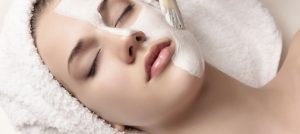Teenagers as well as adults often struggle with acne-prone skin. Unfortunately, in the case of skin problems, age does not matter. Pimples, zits and blackheads blemish your skin while the post-acne scars are very difficult to remove. Learn what acne really is and how to overcome it once and for all. The effects will be stunning.
Acne – what is it?
Acne is a chronic skin disease with inflammation of the sebaceous glands and hair follicles. In most cases, it is a result of hormonal disorders and appears during adolescence. However, acne also an often problem of adults as a consequence of inappropriate care, hormonal disorders due to menopause, stress susceptibility, smoking cigarettes and consuming alcohol. Zits usually appear where there are large concentrations of sebaceous glands, such as face and back. If you start to properly care for your skin, change your diet and exercise, acne will disappear.
Sebum – what is it?
Sebaceous glands are located on the entire surface of the skin (except for the soles and inner part of the hand). They are responsible for sebum secretions. The sebaceous glands do not have their own escape, so they are releasing moisture into the hair follicles. In order for the sebum to freely emerge to the surface of the skin, hair follicles need to function properly. Sebum forms a film on the skin softening and preventing excessive water loss. The production of this secretion is affected by the temperature and time of day. Also, levels of vitamins and minerals, including vitamin A and those of group B, and zinc are extremely important.
Furthermore, hormones are responsible for the proper secretion of sebum. When their level is not regulated, it is followed by excessive production of sebum and narrowing of the hair follicle. In the accumulated sebum bacteria multiplies and irritates the skin from the inside. The body activates protective processes such as cell division and the formation of immune cells. This results in discharging of pus and then inflammation.
How to overcome acne?
To reduce sebum secretion and relieve inflammation, deploy the appropriate care, eat healthy foods and avoid stress.
- First, you need to counteract the effects of increased hormone production. How to do it? Do not eat foods that are responsible for the formation of acne. Avoid spices, dairy products and those that contain sugars, salty snacks, soft drinks and sweets. Complete your menu with dietary supplements. What else can you do? Avoid stress. This factor, without a doubt, affects the exacerbation of acne. The greater the stress, the more pimples appear on your face. New imperfections and inflammations can stress even more. It is like a vicious circle.
- Secondly, clean the skin of excess sebum. It is not about the use of strong cosmetics and cleansing your face every couple of hours. Dried or degreased skin begins to produce more sebum. This will cause more and more pimples. What to do? Wash your face once or twice a day with mild pharmaceutical preparations. Avoid soaps and drying products in liquid formula.
- Thirdly, limit the growth of bacteria. The simplest solution is taking medication prescribed by a dermatologist. Use cosmetics containing antimicrobial substances every day. They can be components of natural or mineral origin, as well as antibiotics.
What should you absolutely never do?
Sebum production and the severity of acne are caused by: long tanning in the sun or in a tanning bed, popping pimples, too frequent washing of the skin, smoking and excessive makeup. If you avoid all these factors, your skin will surely be beautiful, healthy and flawless.





Leave a Reply